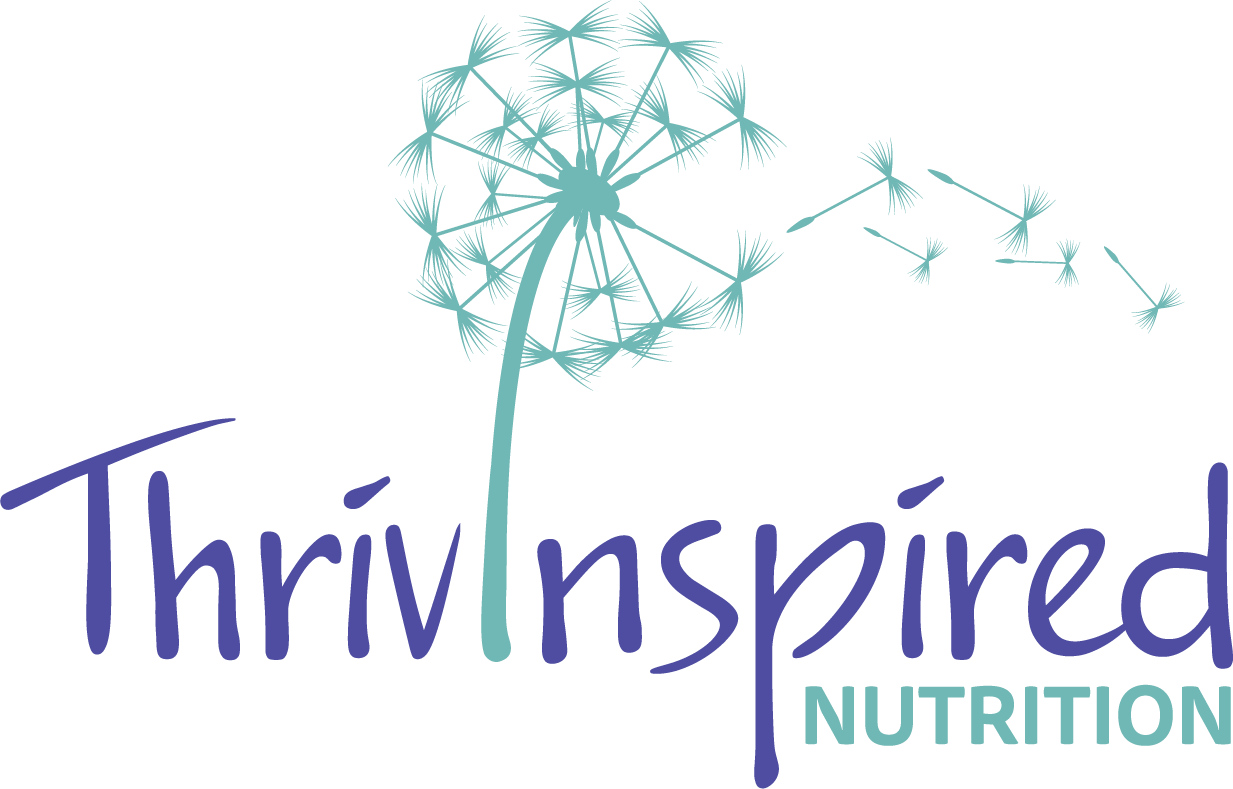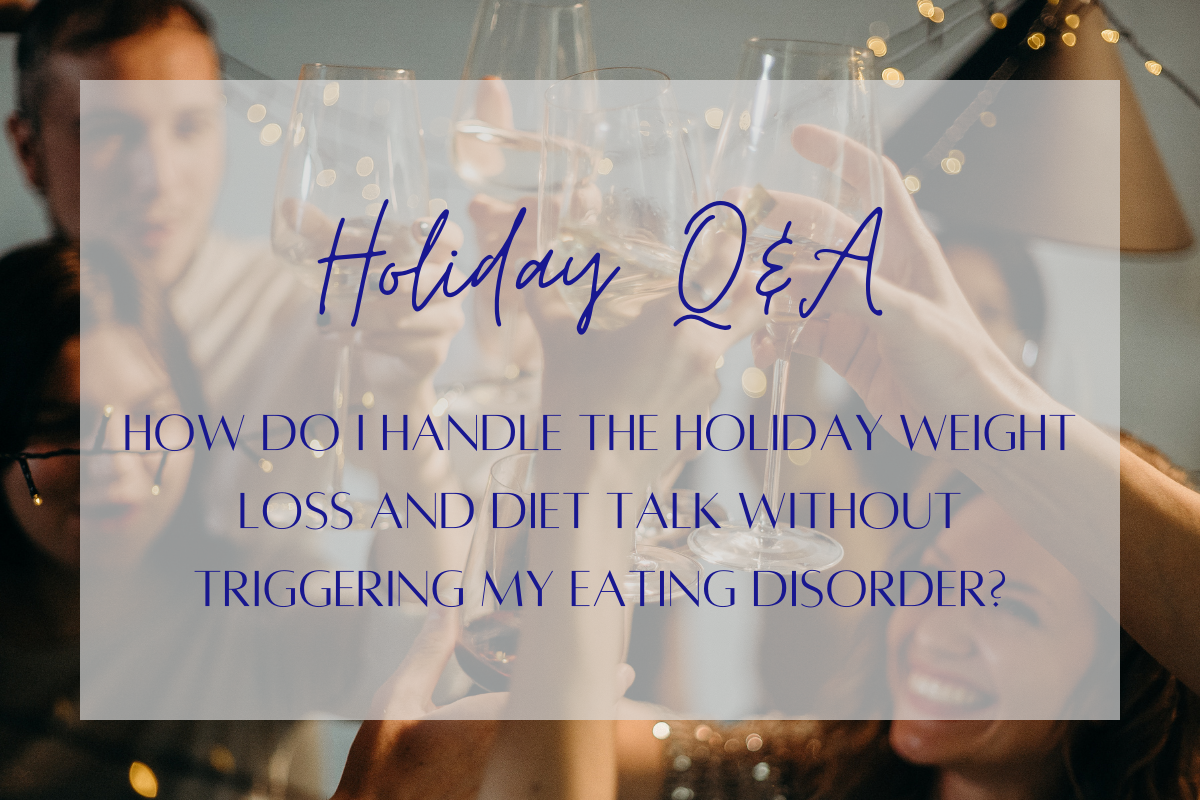Holiday Q&A: How do I handle the holiday weight loss and diet talk without triggering my eating disorder?
/Question
How do I handle the holiday weight loss and diet talk without triggering my eating disorder?
Answer
This is a great question. There’s more than one way to handle unhelpful conversations about food and weight that come up at holiday dinners or in small talk with relatives, and I encourage you to do what feels the most manageable for you on that day. That’s because the goal is not to handle the situation perfectly, but to protect your recovery, whatever that may look like for you right now.
Responding to body talk
Some possible ways you could respond to someone if they make a comment about your body could be:
“While you may have meant it as a compliment, I would prefer not talking about weight or bodies. I’d love to talk more about (any other thing going on in your life, or you could ask them a question about themselves)
“I don’t think my weight/body is that interesting to talk about, but I would love to tell you more about (any other thing going on in your life)
“I’m more focused on how I’m feeling versus what I look like, and right now I’m feeling good.”
You could respond in a way that is unrelated to appearance or weight, changing the conversation “It’s good to see you, how is it going with X, Y, and Z?” or “You look so happy, tell me more about X!”
Or just excuse yourself from the conversation altogether
Responding to food judgments or diet talk
If you’re in a conversation with someone and they share a food judgment, or start talking about dieting, you could respond by saying:
“I don’t think about food in those terms, it doesn’t feel helpful.”
“I’m not sure about that.” And then change the subject.
“I’m not really up for talking about dieting right now. What are other things you have going on, how is (work/school/etc)?”
Or change the subject
Or excuse yourself from the conversation altogether
What are some other ways you might respond that could be helpful for your recovery?
Some additional thoughts
A couple other things to keep in mind when navigating these conversations, which as we know, are not exclusive to the holiday season:
You might consider asking for support from someone you trust and who knows what could be helpful to you before the event so you have an ally. Could this person change the subject when a conversation veers into diet culture territory, or be the person who “needs” you when you excuse yourself from a conversation?
You can choose whether you want to have a more in-depth conversation with someone about the “why” behind your decision to not engage in conversations about weight, food, and health, but know you are not obligated to explain yourself.
It’s not your responsibility to teach someone about diet culture, intuitive eating, HAES, etc., nor convince them to ditch their diet or food judgments.
We hope this gives you some ideas on how you might approach these difficult scenarios. Wishing you a happy, healthy, safe, and warm holiday season.
Seeking some more individualized support this holiday season? Contact us to schedule a FREE discovery call and see if working together is a good fit for you! We see clients in Vermont, Florida, and several other states. And, be sure to join our email list for more tips and support on your healing journey.


